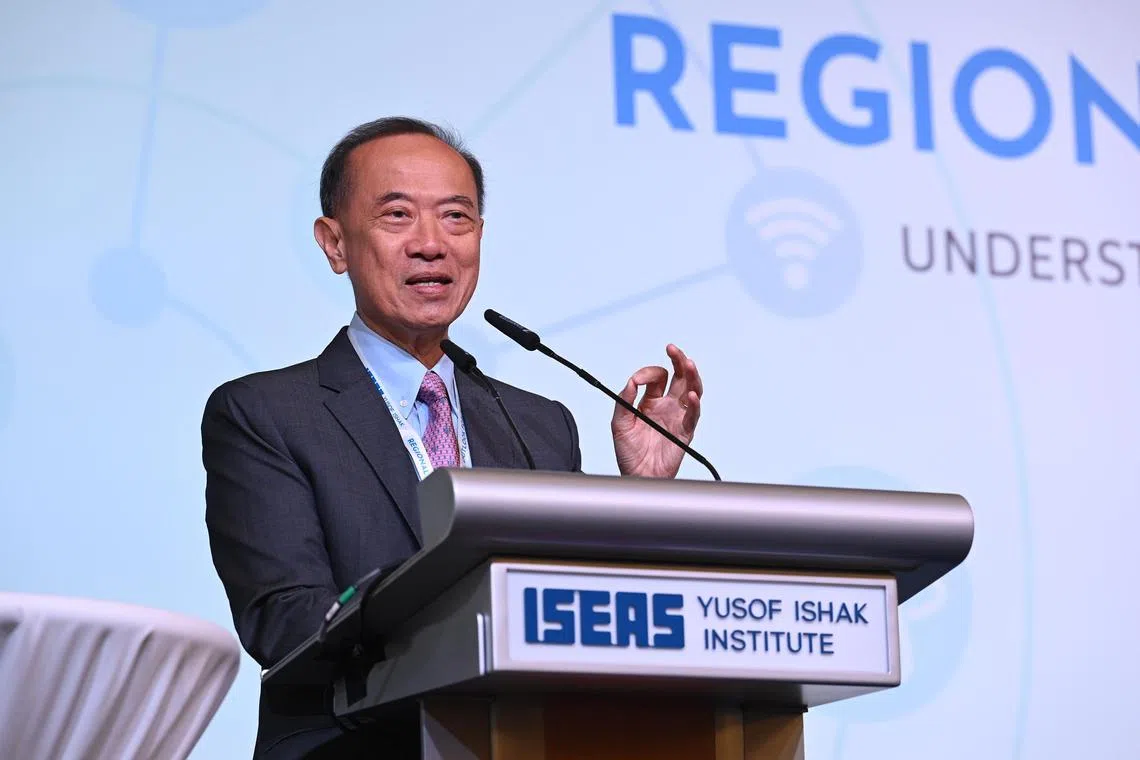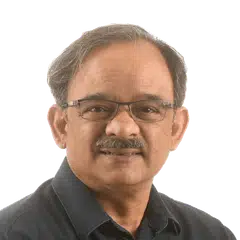Singapore and Asean can benefit from a multipolar world, says George Yeo
Sign up now: Get ST's newsletters delivered to your inbox

Economies within Asean will become even more important as a trade and manufacturing hub in a fractured global economy, said Mr George Yeo.
PHOTO: ISEAS
SINGAPORE – Singapore and other South-east Asian economies can continue to prosper even in a divided world if they succeed in striking a balanced relationship with major economic powers, said the Republic’s former foreign minister George Yeo.
Speaking at the UOB Global Markets Economic Forum in Singapore on Wednesday, he noted that the global economy is going through a turbulent transition to a multipolar world, which will include a multipolar financial system.
But Asean, with its 10 economies, will become even more important as a trade and manufacturing hub in a fractured global economy, he said.
“The way the world is going, Asean will become more and more attractive to more and more major powers,” added Mr Yeo, who served as foreign minister between 2004 and 2011 and is now a visiting scholar at the Lee Kuan Yew School of Public Policy in Singapore.
The people of South-east Asia have historically displayed an instinctive know-how to deal with a multipolar world, he said. “All of us have a keen sense of balance.”
While China’s economic heft has made it the pre-eminent challenger to Western hegemony, in time other major powers will also seek alternatives to the global financial system dominated in the past several decades by the United States, he added.
“So if we play it right, South-east Asia has a very bright future in the multipolar world,” he said.
“The Chinese will need us, Americans will need us and the Japanese will need us. We are connected in a million different ways not only with China but with all parts of the world.”
And with Singapore smack in the middle of the region, it “will benefit a lot if we position ourselves right”, he said.
Mr Frederick Chin, UOB’s head of group wholesale banking and markets, said the decoupling of the US and China since the trade war that started in 2018 has triggered a reorganisation of global supply chains.
“Yet, major economies remain highly interconnected, thriving on trade and collaboration.”
He said Asean should take advantage of the reorganisation of supply chains and open up to the resultant investment flows.
“Given today’s multipolar world, we should be expecting a new post-Covid-19 era of reglobalisation along a different set of geopolitical objectives,” he said.
UOB’s head of research Suan Teck Kin, in his presentation of the bank’s macroeconomic view for 2023, showed how Asean has increased its share of trade with both the US and China since 2018.
Mr Yeo said China does not want its renminbi to replace the US dollar as the currency of global reserves and payments, as it would require the world’s second-largest economy to fully open up its capital markets to foreign players.
“I don’t believe China will ever fully open up its capital markets,” he added.
But China will remain the single most important manufacturing hub, its currency will be one of the major ones in the world and its domestic economy will become a major driver of global growth in the coming decades, just as the US domestic economy was in the past decades, he said.



